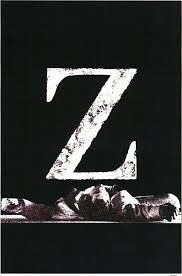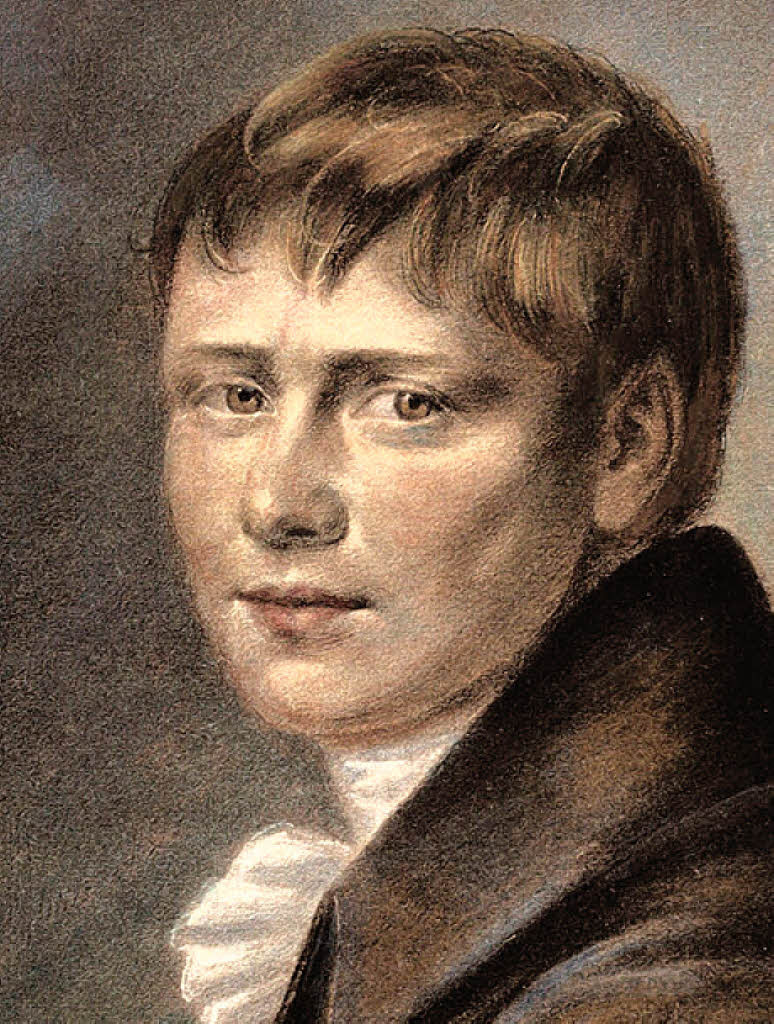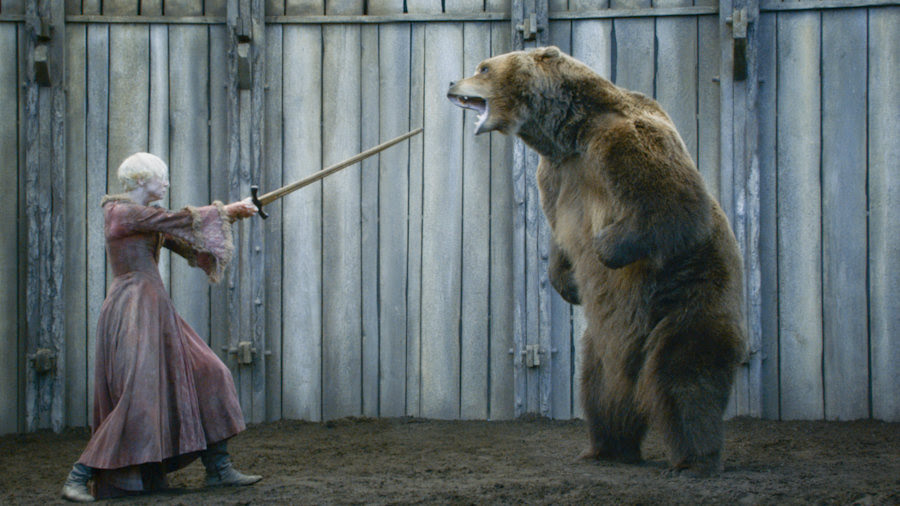
In “Let’s Make More Movies,” the epistemological anarchist Paul Feyerabend wrote this:
The separation of subjects that is such a pronounced characteristic of modern philosophy is … not altogether undesirable. It is a step on the way to a more satisfactory type of myth. What is needed to proceed further is not the return to harmony and stability as too many critics of the status quo, Marxists included, seem to think, but a form of life in which the constituents of older myths —theories, books, images, emotions, sounds, institutions — enter as interacting but antagonistic elements. Brecht’s theatre was an attempt to create such a form of life. He did not entirely succeed. I suggest we try movies instead. (P. Feyerabend, “Let’s Make more Movies,” in The Owl of Minerva: Philosophers on Philosophy, Ch. J. Bontempo and S. J. Odell (eds), McGraw-Hill: New York 1975, pp. 201-210.)

INTRODUCTION

1. Sam Harris says we’re nothing but “biochemical puppets” that mechanically create the cognitive illusion of our own free will.
2. So if Harris is correct, then by the same token he cannot rule out the real possibility that he’s merely mechanically created a cognitive illusion for himself by developing the theory that we’re nothing but biochemical puppets that mechanically create the illusion of our own free will.
3. But if he cannot rule this out, then he’s not rationally justified in believing in his own theory.
4. Therefore Harris’s theory is cognitively self-refuting.
So much for Harris’s theory.
What’s MUCH more interesting is why so many reflective people, not to mention unreflective people, find the idea of their own, and our, metaphysical puppetry so very, very comforting?
Heinrich von Kleist’s answer is that by becoming puppets, we become gods.
In turn, he seems to have developed this view as a direct defensive metaphysical response to his own “Kant crisis”:

Kleist in his youth had espoused with enthusiasm all the optimism of the Enlightenment. Reason would conquer all; happiness would come with experience and understanding. In March 1801, however, by his own account, he seems to have encountered the thought of Immanuel Kant (it is not clear what precisely he read), and his world fell apart. By testing the nature and limits of human knowledge, Kant had sought primarily to establish the possibility of a meaningful metaphysics. To Kleist, however, it was much grimmer than that: Kant had shown, he believed, that empirical knowledge was unreliable, reason illusory, truth unattainable and life quite meaningless. “My sole and highest goal has vanished,” he wrote. “Now I have none.” (Ian Brunskill)
ON THE MARIONETTE THEATER
By Heinrich von Kleist
One evening in the winter of 1801 as I walked in the park, I happened to meet Mr. C— who was engaged as first dancer in the opera, a man very popular with the public. I told him, in passing, that I had seen him several times at an outdoor marionette theater that had been set up in the market square to entertain the common-folk with songs and dances and short dramatic burlesques.

He assured me that I need not be surprised at his delight in the pantomime of these marionettes; and he hinted that they could be very effective teachers of the dance. Since he did not seem to be indulging a mere whim about them, I sat down with him to discuss this strange theory in which marionettes seemed to become teachers.
He asked me if I had not been impressed by the elegance and gracefulness of the movements of these puppets, particularly of the smaller ones.

I could not deny that I had been impressed. A group of four peasants dancing a fast Rondo could not have been portrayed with more beauty and charm by the most famous Flemish painter of village scenes.

I inquired about the mechanical control of these figures. How was it possible to direct the small limbs in the intricate rhythms of the dance? How did the puppeteer manage without having his hands tied in a confusion of strings?

He replied that I should not be deceived into thinking that each limb was separately controlled in all the phases of the dance. “Each marionette,” he said, “has a focal point in movement, a center of gravity, and when the center is moved, the limbs follow without any additional handling. After all, the limbs are pendula, echoing automatically the movement of the center.

“These movements of the center are very simple. Every time the center of gravity is guided in a straight line, the limbs describe curves that complement and extend the basically simple movement. Many times when the marionettes are merely shaken arbitrarily, they are transformed into a kind of rhythmic movement that in itself is very similar to the dance.”

These remarks seemed at first to throw light on his enjoyment of the marionette theater, but I did not as yet have any concept of the consequences of his ideas.
I asked him whether he thought that the puppeteer should have some sense of the beauty in dance.

He replied: “Even if the manipulation is easy, it is not necessarily performed without feeling. The line which the center of gravity has to describe is, at any rate, very simple and in most cases straight. In cases where the line is curved, the curve remains simple, at the most complicated, elliptic; and the ellipse (because of the joints) seems to be the natural curve for movement of the human body. The drawing of an ellipse does not demand any great artistry on the part of the puppeteer. On the other hand there is something enigmatic about an ellipse. It is actually the course that the soul of the dancer takes when the dancer moves, and I doubt whether this course can be traced if the puppeteer does not enter the center of gravity of his marionette; in other words, the puppeteer himself must dance.”

I replied that I had regarded the handling of marionettes as something rather spiritless, approximate to the turning of the crank that plays a hand organ.
“Not in the least,” he said, “the action of the puppeteer’s fingers is directly related to the movements of his marionette, just as numbers relate to their logarithms; but then it may be true that this last vestige of human spirit can be eliminated from the marionettes; and then their dance would be completely mechanized, performed with a crank as you have suggested.”
Immanuel Kant (Stanford Encyclopedia of Philosophy, section 5.2)

The most important belief about things in themselves that Kant thinks only practical philosophy can justify concerns human freedom. Freedom is important because, on Kant’s view, moral appraisal presupposes that we are free in the sense that we have the ability to do otherwise. To see why, consider Kant’s example of a man who commits a theft (5:95ff.). Kant holds that in order for this man’s action to be morally wrong, it must have been within his control in the sense that it was within his power at the time not to have committed the theft. If this was not within his control at the time, then, while it may be useful to punish him in order to shape his behavior or to influence others, it nevertheless would not be correct to say that his action was morally wrong. Moral rightness and wrongness apply only to free agents who control their actions and have it in their power, at the time of their turnspit,” or a projectile in flight, or the motion of a clock’s hands (5:96–97). The proximate causes of these movements are internal to the turnspit, the projectile, and the clock at the time of the movement. This cannot be sufficient for moral actions, either to act rightly or not. According to Kant, this is just common sense.
On these grounds, Kant rejects a type of compatibilism that he calls the “comparative concept of freedom” and associates with Leibniz (5:96–97). (Note that Kant has a specific type of compatibilism in mind, which I will refer to simply as “compatibilism,” although there may be other types of compatibilism that do not fit Kant’s characterization of that view). On the compatibilist view, as Kant understands it, I am free whenever the cause of my action is within me. So I am unfree only when something external to me pushes or moves me, but I am free whenever the proximate cause of my body’s movement is internal to me as an “acting being” (5:96). If we distinguish between involuntary convulsions and voluntary bodily movements, then on this view free actions are just voluntary bodily movements. Kant ridicules this view as a “wretched subterfuge” that tries to solve an ancient philosophical problem “with a little quibbling about words” (ibid.). This view, he says, assimilates human freedom to “the freedom of a turnspit,” or a projectile in flight, or the motion of a clock’s hands (5:96–97). The proximate causes of these movements are internal to the turnspit, the projectile, and the clock at the time of the movement. This cannot be sufficient for moral responsibility.
I was surprised that he favored this minor variation of a great art form, surprised not only that he thought it capable of development but also that he seemed to concern himself with its development.
He smiled and said: “I will even dare to maintain that if an artisan would follow the directions that I want to give and build a marionette for me, I could have that marionette perform a dance which neither I nor any other capable dancer of this era could duplicate.”
I stared at the pavement between my feet. “Have you,” he asked, “seen the artificial legs that British artisans are manufacturing for amputees?”

I said no; I had never seen anything of the sort.
“I am sorry,” he answered, “because if I tell you that amputees dance with these legs, I rather fear you will not believe me.”
“What,” I said, “dance?”
“Yes, their sphere of movement is limited, but the movements that they command they perform with a poise, ease and gracefulness that would astound you.”

I said jokingly that he had found his man. The artisan who was able to build such a remarkable leg should, doubtless, be able to build a marionette to his specifications.
It was his turn to stare silently at the pavement. “What,” I asked, “are the specific demands you want to make for your marionette?”
“Nothing,” he said, “nothing that is unusual; simple harmonious proportion, mobility, ease of manipulation; but each of these qualities must be developed to a higher degree; and most particularly the placement of the center of gravity must be more true to nature than in the common marionette.”
“And what advantage would these marionettes of yours have over the human dancer?”
“Advantage . . . at first only a negative one. The marionette would never slip into affectation (if we think of affectation as appearing when the center of intention of a movement is separated from the center of gravity of the movement). Since the puppeteer has no control over any point other than the center of gravity, and since this center is his only means of starting an intended movement, as the limbs follow the law of gravity and are what they ought to be: dead, mere pendula. We look in vain for this quality in the majority of our dancers.”
“Look at Miss P—” he continued, “when she plays Daphne, persecuted by Apollo, she looks back at him; the soul, the center of intention, is located in the lumbar vertebra; she bends down as if she would break; and young F— when, as Paris, he stands among the goddesses and presents the apple to Venus, his soul is (oh painful to behold!) in his elbow.

“Great blunders,” he added, “are inevitable. We have eaten from the tree of knowledge; the paradise of Eden is locked up; and the Cherubim is behind us. We must wander about the world and see if, perhaps, we can find an unguarded back door.”
I laughed. Certainly, I thought, the spirit cannot err when it is non-existent. But I saw that he had more on his mind and I asked him to continue.
“These marionettes,” he said, “have another advantage. They haven’t discovered the law of gravity. They know nothing about the inertia of matter. In other words they know nothing of those qualities most opposed to the dance. The force that pulls them into the air is more powerful than that which shackles them to the earth. What would not our dear G— give to be sixty pounds lighter or to have a force that would lift her for her entrechats and pirouettes. These marionettes, like fairies, use the earth only as a point of departure; they return to it only to renew the flight of their limbs with a momentary pause. We, on the other hand, need the earth: for rest, for repose from the effort of the dance; but this rest of ours is, in itself, obviously not dance; and we can do no better than disguise our moments of rest as much as possible.”

I said that however cleverly he managed his paradoxes he would never make me believe that there was more grace in a jointed mechanical doll than there is in the structure of the human body.
He replied: “It is simply impossible for a human being to reach the grace of the jointed doll. Only a god can duel with matter on this level, and it is at this point that the two ends of the ring-formed world grasp each other.”
I was more surprised than before, and I did not know how to reply to these strange statements.
“It would seem,” he said, “that you have not read the third chapter of Genesis with sufficient attention; and if one does not understand the first period of human culture, it is difficult enough to talk about the periods that follow but almost impossible to discuss the very last period.”

I said: “I know all too well the disorder that self-consciousness imposes on the natural grace of the human being. Before my very eyes, a young acquaintance of mine ‘lost his innocence,’ and he has never recovered his lost paradise despite his efforts. But what consequences can you draw from that?”

He asked me what had happened.
“About three years ago,” I said, “I was bathing with a young man who at that time had a wonderful quality of physical grace. He was about sixteen years old; and since he had only vaguely attracted the attention of women, the first traces of vanity were barely discernible. It happened that we had both just seen the statue of the youth removing a splinter from his foot; (the cast of this sculpture is included in most German collections). As my young friend was drying himself, he put his foot an a stool; a glance at his reflection in a large mirror reminded him of the statue. He smiled and told me his discovery. In fact I had made the same discovery at that very moment, but to counter his vanity I laughed and replied that he was seeing ghosts. He blushed and lifted his foot a second time to show me. Of course, the experiment failed. Confused, he lifted his foot a third and fourth time; he lifted it possibly ten times in all and in vain. He was incapable of reproducing the gesture; in fact, the movement that he made had such an element of oddity that it was hard for me to repress my laughter.

“From that day on, practically from the very moment, the young man was changed. Day after day he stood before a mirror, and one by one his charms fell away from him. An invisible and inconceivable pressure (like an iron net) seemed to confine the free flow of his gestures, and after a year had passed there remained not a trace of that loveliness that had so delighted everyone.”
Mr. C— began very gently: “On this occasion I must tell you yet another story. You will understand easily how it relates.
“On my journey to Russia I stayed at the estate of Herr von G—, a Lithuanian nobleman, whose sons were at that time intense in their practice of fencing. The older one, just back from the university, styled himself a virtuoso and one morning offered me a rapier. We fenced, and it happened that I was victorious. His passion had added to his confusion; and almost every thrust that I made was a hit until finally his rapier was knocked from his hand.
“As he picked it up, half in joke, half in irritation, he said that he had found his master, indeed that everyone in the world eventually found his master and that he would show me mine. The brother laughed heartily and shouted: ‘Let’s go to the woodshed.’ And with that they took me by the arm and led me to a bear which their father had had raised in the yard.
“As I approached, the bear stood erect with his back against the pole to which he was chained. He looked me in the eye, his right paw raised; he was in fencing position. For a moment, confronted by this strange rival, I thought I was dreaming. ‘Foil, foil,’ said Herr von G—, ‘see if you can strike him.’ When I had recovered from my astonishment, I thrust at him with the rapier; the bear flipped his paw; the thrust was parried. I tried to seduce him with a feint; the bear did not budge. With a sudden lunge I thrust again; I would absolutely have hit a human opponent; the bear flipped his paw, parried the thrust. I was in the same spot that young Herr von G— had been. The bear’s concentration added to my loss of composure. I alternated thrusts and feints; I sweated, in vain! Like the finest fencer in the world, the bear met and parried each thrust, but he did not respond to feints; (no fencer in the world could have matched him in that). Eye to eye, as if he read my soul, he stood with his paw lifted, ready to fight; and if I did not intend my thrust, he remained immobile.

“Do you believe this story?”
“Absolutely!” I exclaimed, applauding him. “I would believe it of anyone and how much more of you.”
“Now then,” said Mr. C—, “you have in your possession every means of understanding me. We see that in the natural world, as the power of reflection darkens and weakens, grace comes forward, more radiant, more dominating . . . But that is not all; two lines intersect, separate and pass through infinity and beyond, only to suddenly reappear at the same point of intersection. As we look in a concave mirror, the image vanishes into infinity and appears again close before us. Just in this way, after self-consciousness has, so to speak, passed through infinity, the quality of grace will reappear; and this reborn quality will appear in the greatest purity, a purity that has either no consciousness or consciousness without limit: either the jointed doll or the god.”

“Therefore,” I said, a little distracted, “we must eat from the tree of knowledge again and fall back into a state of innocence.”

“By all means,” he replied, “that is the last chapter in the history of the world.”